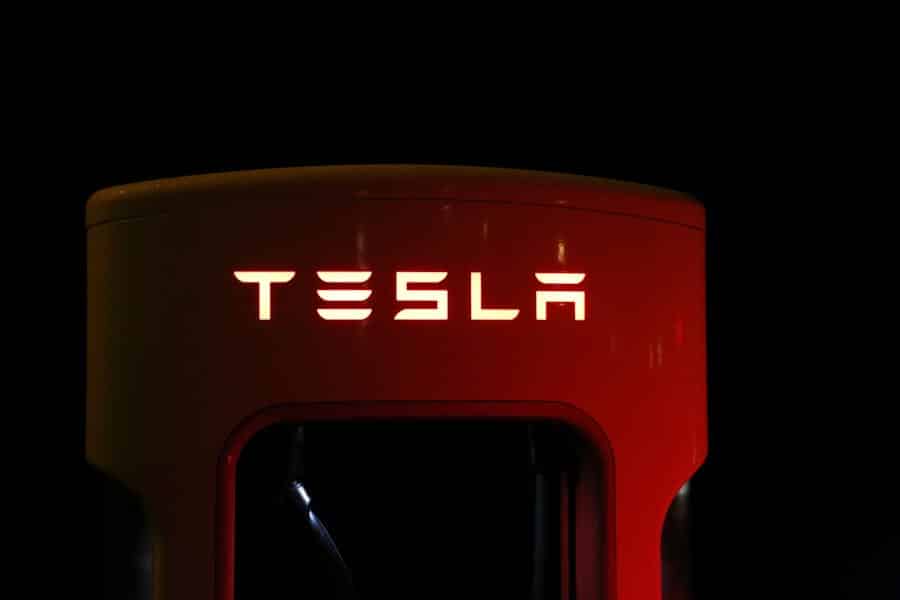
Tesla, Inc., a frontrunner in electric vehicle (EV) technology and renewable energy solutions, has recently seen a noticeable dip in its stock price, stirring concerns and curiosity among investors and market analysts alike. This article aims to unravel the complex tapestry of factors contributing to the downturn of Tesla’s stock. From internal production challenges and leadership changes to broader economic conditions and industry competition, we will explore the myriad influences that sway the market’s confidence in this innovative giant. Understanding these dynamics is crucial for stakeholders looking to gauge the future trajectory of Tesla’s financial and operational health.
What Are The Possible Reasons For Tesla’s Stock Down?
Tesla’s stock fluctuations can be influenced by many factors, ranging from internal corporate dynamics to broader economic conditions. Here’s a detailed look at some potential reasons for a downturn in Tesla’s stock:
Production Challenges: Tesla has historically faced challenges in scaling up production to meet the high demand for its vehicles. Issues like manufacturing bottlenecks, delays in production lines (especially in new factories), or shortages in critical components like semiconductors can impact the company’s ability to deliver cars on time, affecting revenue projections and investor confidence.
Executive Turnover: Leadership stability is crucial for investor confidence, and Tesla has seen significant turnover in its executive ranks over the years. High-profile departures can lead to uncertainty about the company’s strategic direction and operational continuity, prompting investors to reassess the company’s long-term viability and leadership quality.
Regulatory and Legal Issues: Tesla operates in a highly regulated industry where changes in environmental regulations, vehicle safety standards, and trade policies can significantly impact operations. Additionally, any legal issues, whether from regulatory bodies or through litigation, can pose financial and reputational risks, leading to negative investor sentiment.
Economic Conditions: General economic downturns, rising interest rates, or inflation can also affect stock market volatility, affecting Tesla’s stock. Such conditions often reduce consumer spending on high-value items like cars, and investors might pull back from growth stocks, which are viewed as riskier investments during economic contractions.
Competition: The electric vehicle market is becoming increasingly crowded, with traditional automakers and new entrants introducing competitive offerings. As competitors catch up in technology and market reach, Tesla’s pioneering advantage may diminish, impacting its market share and growth prospects.
Market Sentiment Driven by Elon Musk: Elon Musk’s public statements and social media activity have a well-documented impact on Tesla’s stock. His tweets can sway market sentiment dramatically, sometimes leading to rapid stock price movements. This volatility can deter more conservative investors, who prefer stable investments.
Technological Disruptions: While Tesla is at the forefront of EV and battery technology, any delays or failures in advancing their technology, such as enhancements in battery efficiency or autonomous driving capabilities, can lead to dissatisfaction among investors. The anticipation of innovation drives Tesla’s valuation, and any perceived stalling can negatively affect the stock.
Impact Of Global Economic Slowdown Or Recession Fears
The impact of a global economic slowdown or recession fears on Tesla’s stock can be profound, as these larger economic conditions play a significant role in shaping investor behavior and corporate performance. Here are some ways in which such economic scenarios might affect Tesla:
Consumer Spending Reduction
During economic slowdowns or recessions, consumer confidence typically declines, leading to reduced spending on non-essential goods, including new vehicles. This can translate to lower sales volumes for Tesla, especially since electric vehicles (EVs) are often viewed as premium products. A drop in demand would directly impact Tesla’s revenue and could lead to adjustments in production levels.
Supply Chain Disruptions
Economic downturns can lead to disruptions in supply chains, which are critical for manufacturing operations like Tesla’s. These disruptions might be due to suppliers facing financial difficulties, reduced manufacturing capacity, or logistical challenges. Such disruptions can increase production costs or delay production schedules, further impacting Tesla’s financial performance and stock price.
Access to Capital
During recessions, credit markets often tighten as lenders become more cautious, potentially making it more difficult and expensive for companies to borrow money. For a capital-intensive company like Tesla, which relies on continuous investment to fund growth initiatives and capital expenditures, restricted access to financing can limit its ability to expand or maintain operations at current levels.
Currency Volatility
A global economic slowdown can lead to increased volatility in currency exchange rates. For a global company like Tesla, which operates and sells its products in various international markets, currency fluctuations can significantly affect earnings repatriated from overseas and the cost of imported components. This volatility can complicate financial planning and impact profitability.
Investment Priorities Shift
In uncertain economic times, investors often shift their priorities towards safer, more stable investments, moving away from stocks perceived as risky. These often include technology and high-growth stocks like Tesla. This shift can lead to a sell-off in Tesla’s stock, increasing volatility and potentially leading to a lower stock price.
Strategic Focus on Efficiency
Faced with an economic downturn, Tesla might need to shift its strategic focus toward improving operational efficiency and cost management. This could involve reevaluating expenditures on research and development, marketing, and other areas to better align with the reduced economic activity.
Long-term Investments Delay
Fears of recession can lead companies to delay new projects or expansions, impacting long-term growth prospects. For Tesla, this might mean postponing the development of new models, improving battery technology, or expanding into new markets.
Overview Of Tesla’s Financial Health
Tesla’s financial health provides a crucial insight into its stock performance, reflecting its ability to innovate, scale, and maintain profitability amidst various challenges. To assess Tesla’s current economic condition, it is important to examine key financial metrics and recent performance trends.
Tesla’s revenue growth is a primary indicator of its financial health. Over recent quarters, the company has reported revenue increases attributed to rising sales volumes across its various models. However, profitability has seen fluctuations due to increased production costs, supply chain disruptions, and changes in pricing strategies. Investors and analysts closely monitor Tesla’s profit margins, particularly gross and operating margins, as these provide insight into the company’s efficiency and cost management capabilities.
Tesla’s dominance in the electric vehicle sector is well noted. The company has a significant market share in the United States and increasingly in markets like Europe and China. The company’s ability to maintain and expand its market share is crucial, especially as traditional automakers and new entrants intensify competition in the EV space. Market share dynamics are directly linked to Tesla’s stock performance as investors look for growth potential in the burgeoning EV market.
Critical financial ratios such as the price-to-earnings (P/E) ratio, debt-to-equity ratio, and return on equity (ROE) offer additional insights into Tesla’s financial stability and market valuation. The P/E ratio, for instance, can indicate if Tesla’s stock is overvalued relative to earnings, which is a common concern among investors considering the high volatility in Tesla’s stock prices. The debt-to-equity ratio sheds light on the company’s reliance on debt financing, while ROE helps evaluate the efficiency of capital utilization within Tesla.
Investor sentiment significantly influences Tesla’s stock, often driven by the company’s earnings reports, announcements, and Elon Musk’s public statements. Investor confidence can be gauged through stock analysis reports, analyst ratings, and shifts in stock ownership patterns among institutional and retail investors. Positive sentiments generally boost stock prices, while uncertainties or negative news can lead to declines.
Tesla’s ability to generate cash from its operations is vital for sustained growth and investment in new projects like factory expansions, new model development, and infrastructure for supercharging stations. Monitoring cash flow statements helps assess Tesla’s operational efficiency and liquidity to manage short-term liabilities and investments.
Warping Up
Tesla’s stock price fluctuations can be attributed to various internal factors that impact the company’s operational and strategic performance. Production and supply chain inefficiencies, executive turnover, quality control issues, financial management strategies, corporate governance, and technological innovation delays play significant roles in shaping investor perceptions and confidence. As Tesla addresses these challenges, its ability to maintain leadership in the electric vehicle market and uphold investor confidence will be crucial in determining the future trajectory of its stock price. Managing these internal dynamics effectively will be key to stabilizing and potentially enhancing Tesla’s market valuation.
FAQ’s
How does Elon Musk’s behavior affect Tesla’s stock price?
Elon Musk’s public statements and social media activities can significantly influence investor sentiment and subsequently impact Tesla’s stock price due to perceived risks or instability.
How do competitive pressures in the EV market impact Tesla’s stock?
Increased competition in the electric vehicle market from established automakers and new entrants can erode Tesla’s market share and pressure its growth prospects, impacting its stock.
What role do production issues play in Tesla’s stock valuation?
Production issues, including delays in manufacturing or shortages of key components, can hinder Tesla’s ability to meet demand, affecting revenue forecasts and investor confidence.





